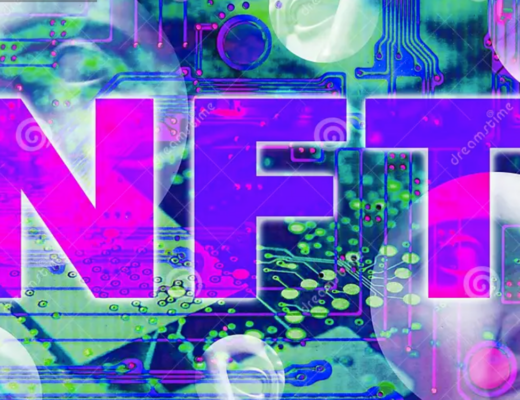It is no surprise that there is plenty of confusion in the common consensus around the definition of Indie music. While some defiantly proclaim that indie is NOT a genre, their defiant standpoint does little to explain the undeniably sonic likeness to the artists that often fall under the indie umbrella. Most guitar-based pop artists can’t seem to shed their indie status, regardless of how dependant they become on companies to distribute, create and promote their music.
Popular bands including REM, The Libertines, Arctic Monkeys, The Strokes and The Smiths are all listed as some of the best indie artists of all time. However, when Warner Bros. Records signed REM and the Strokes found themselves on the roster at RCA Records, they *technically* shed their independent artist status.
Originally the term ‘indie’ wasn’t affixed to bands to describe their sound; it alluded to their distribution style, financial status and autonomous way of creating their music. Independent artists operated outside the gaze and control of the ‘big four’ record companies (EMI, SONY BMG, Universal Group and Warner Music Group). Instead, artists either adopted a DIY (or die) ethos or partnered with one of the independent record labels which didn’t share the financial force of the big four.
Still, it seems somewhat of a contradiction that you can walk around a record store and find the indie crates with Florence and the Machine and Oasis records, or head to an indie night and be sure that you will hear King of Leon and The Killers. To truly understand how indie became a homophone, you’ll need to head back to the 70s.
The Origins of Indie Music
- The 1970s – The term ‘indie rock’ became popular when it was used interchangeably with ‘guitar pop rock’ and ‘alternative rock’ in the US and the UK. Plenty of iconic independent record labels started to spring up in the 70s, including Manchester’s Factory Records (Joy Division, Happy Mondays, New Order, James), Stiff Records, who practically made punk happen in the UK and, of course, Rough Trade Records.
- The 1980s – The term ‘indie’ started to veer further away from reference to independent record labels and artists, even more, when punk and post-punk artists noisily emerged. The 80s saw the rise of Mute records, which became a long-term home of artists such as Nick Cave and the Bad Seeds, Erasure, Depeche Mode and Goldfrapp. While Dischord Records in Washington, DC introduced the world to Fugazi and Minor Threat and Sub Pop started to bring the Seattle sound to international airwaves by establishing in 1986 by championing Nirvana and
- The 1990s – Grunge and Britpop practically removed the word indie from its original meaning, allowing it to become synonymous with alternative music instead. By the end of the 90s, multiple subgenres evolved, including math-rock, post-rock, emo, lo-fi and noise-pop.
- The 2000s – the widespread accessibility of the internet in the 2000s allowed indie music to take off in a massive way as artists stopped being so reliant on major labels to make it in the industry. The internet was used to discover new artists (RIP Myspace) and to frantically search “what IS indie music?!” to settle heated debates in the pub.
The Contemporary Importance of Independent Music
If you’ve ever seen a biopic film about one of your favourite artists or read a book by John Niven, you will have probably gained an idea of the role of record companies within the music industry.
You will also know that profit margins and mainstream potential are often considered above expression by major labels. Unlike artists signed to a major label, independent artists can explore their sonic palette and don’t need to filter their lyrics because their record label fears rocking the boat and the controversy hitting their share value.
Without independent artists and labels, punk would never have happened. If you want an idea of just how devastating that would be, you only need to listen to The King Blues’ What if Punk Never Happened. It’s safe to say that we would never have had no-wave, post-punk, art-rock, psych or avant-garde, shoegaze, noise-rock, lo-fi or space-rock either.
To be an independent artist is not to strive for commercial success but to accept it as a by-product of experimentation and honest expression. This is how indie also became synonymous with emotional or “emo” lyrics which tend to delve far deeper than artists signed to major labels. The term ‘plastic pop’ exists for a reason.
While there is perceptibly an ethos and aesthetic to indie, it can also be defined by its diversity. For example, compared to every other preceding rock genre, indie rock has a significantly higher representation of women in the charts. Kathleen Hanna started the third-wave feminist movement with her Riot Grrrl music in the 90s – at the same time, the ‘ultimate girl group to compete with boy bands’ was manufactured. You only need to look at the difference in the lyrics between the Spice Girls and Bikini Kill to see the true value of indie music.
The popularity of indie music may have seen a decline in the internet era of music with a dip in record sales, but indie music has always been worth more than what the album charts reflect. The uniqueness of the messages in the lyrics and the relatability of the iconic artists (The Smiths, Elliott Smith, Nirvana, Sleater-Kinney) gave people a voice to explore their own identity with. It created culture; it created the possibility of non-mainstream artistic autonomy being enjoyed worldwide.
Discover and Submit Indie Music
A&R Factory has been supporting independent artists since 2012; our award-winning blog attracts millions of visitors worldwide each year, amongst them are industry professionals looking to discover fresh new talent.
If you’re looking to get signed, or you want to expand your reach and get in more ears, submit indie music to our blog to put your music. By submitting your music, you will make yourself known to radio stations, management companies, publishers, record labels, playlist curators and promoters. Regardless of genre, we are always looking for the next big hit.




No Comments